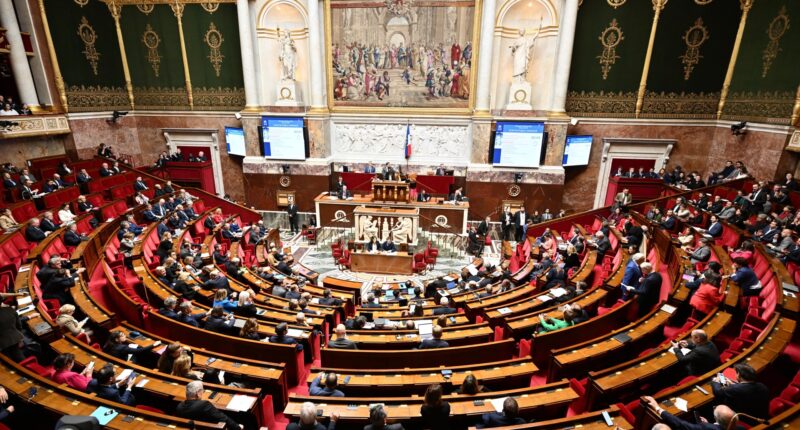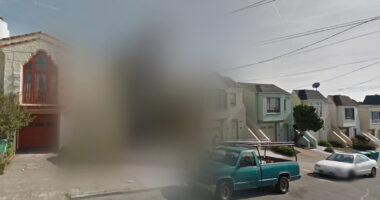THE French government has collapsed after a historic vote of no-confidence was passed against Prime Minister Michel Barnier in the National Assembly.
It marks the first time a French government has been ousted by a no-confidence vote in over 60 years.



French MPs including the left and the far right combined voted 331 out of 574 in favour of the motion to pass, exceeding the minimum mark of 288.
The vote rose from fierce opposition to his proposed budget for 2025 from opposition parties such as the left-wing alliance New Popular Front (NFP) and Marine Le Pen’s far-right National Rally (RN).
They were left angry as Barnier decided to exercise special powers to push through his budget, even though it failed to receive support from MPs.
It comes as a huge blow for President Emmanuel Macron who is now likely to name a new prime minister rapidly, possibly even before the grand reopening of Paris’s Notre Dame Cathedral at the weekend.
This avoids leaving a hole in the heart of the European Union at a time when Germany is also weakened and in election mode.
And the timing continues to be crucial as it’s a mere few weeks before US President-elect Donald Trump re-enters the White House.
The new prime minister faces the same challenges as Barnier in getting bills – including the 2025 budget – adopted by a divided parliament.
There can be no new parliamentary election before July.
Before the collapse of the French government, far-right National Rally leader Marine Le Pen told parliament: “We have arrived at the moment of truth.”
And hard-left France Unbowed lawmaker Eric Coquerel told Barnier: “You will be the first prime minister to be censured since Georges Pompidou in 1962.”
He said a majority of French citizens backed the no-confidence motion, and argued that Barnier, appointed by President Emmanuel Macron in September, had had no legitimacy to begin with.
In a TV interview on Tuesday, Barnier said he still believed his government could survive the vote.



But far-right National Rally (RN) chief Jordan Bardella slammed his optimism, saying it showed the government was “completely out of touch with what is happening in the country”.
He told France Inter radio: “This government is dangerous for my country.
“We will vote for the no-confidence motion.”
Senior left-wing lawmakers also confirmed that their camp would vote to oust Barnier.
Barnier’s interior minister, Bruno Retailleau, was downbeat.
He told CNews: “Nothing’s over until the vote but we can see we’re headed towards censure (of the government).”
Macron, who won a second mandate in 2022, precipitated the crisis by calling the snap parliamentary election in June.
His term as president runs until mid-2027 and he cannot be forced out by parliament, but the RN and the hard left have already been saying he should resign as he faces his biggest crisis since the Yellow Vest popular unrest of 2018-2019.
Since Macron called the election, France’s CAC 40 has dropped nearly 10 per cent and is the heaviest loser among top EU economies.
The single currency is down nearly 4 per cent.
Barnier said the consequences of voting him out would be catastrophic for state finances, but RN lawmaker Laure Lavalette told TF1 TV: “There is no reason for this to lead to major chaos.
“Don’t play with fears … it’s not all going to crumble.”
What happens now the no-confidence vote has succeeded & the government has fallen?
EVEN though the no-confidence vote has now passed, it is unlikely that Prime Minister Michel Barnier will be immediately removed from his post.
He is likely to remain in position as a caretaker leader until Macron announces a replacement government with a new PM.
Any new government is unlikely to be a majority, as none of the parties are near the threshold of 289 required.
Instead, a “technocratic” government would form – and the new prime minister would hold very little actual power until elections can next be held in summer 2025.
Macron was already in a weak position after France’s summer elections, which forced him into a partnership with the political right.
His last prime minister, Gabriel Attal, also headed up a caretaker government and regularly had to use a constitutional tool to force through laws.
This chaotic period severely dented Macron’s credibility as president.
The successful no-confidence vote against Barnier will surely make Macron less effective as a president – and his popularity could tumble even further.
The next presidential elections are in 2027, so Macron will remain in his post until then – if he can hang on.
Macron has no obligation to resign from his post now that the no-confidence vote ahs passed at the parliament.



















